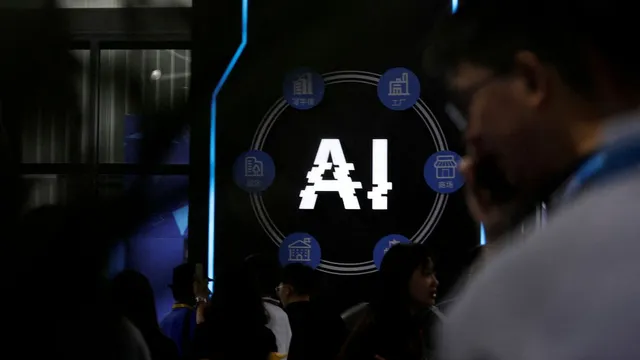- By Alex David
- Tue, 17 Jun 2025 07:14 PM (IST)
- Source:JND
AI has been growing fast, and people are still having problems moving forward with AI. People are still not able to use the AI at its full potential. And on the other hand, AI is working hard and getting better with each passing day.
As artificial intelligence (AI) advances, students and early career workers are being advised to explore paths which will still matter when machines take over job tasks. With everyday job tasks constantly changing and smart robots becoming smarter every year, knowing where humans still outshine computers is essential to remaining employable.
What Is AI Automation?
AI automation – often called intelligent automation or hyper-automation – blends three interrelated concepts:
Artificial Intelligence (AI)
- Robotic Process Automation (RPA)
- Business Process Management (BPM)
These technologies work together to:
- Automate repetitive tasks
- Make smarter decisions using machine learning and natural language processing (NLP)
- Optimize workflows through adaptive systems
Key Benefits:
- Higher efficiency through automation
- Personalized customer experiences
- Smarter, faster decision-making
- Cost reductions
- Increased productivity
Common Use Cases:
- AI chatbots for customer support
- Automated fraud detection
- Personalized recommendations in e-commerce
- AI-assisted large-scale data analysis
- Streamlined business workflows
AI’s Growing Influence on the Job Market
PwC revealed in their Global report that AI adoption is rapidly increasing in industries like IT, financial services, and professional consulting. Professionals in AI-related jobs saw a 56% average salary increase in 2024, up from 25% in 2023.
AI skills demand has grown across the board, and thats not just in tech but in business and design roles as well.
Chief Economist of PwC, Barret Kupelian emphasized in a BBC interview that while AI is automating many processes, it's more likely to augment jobs than replace them—especially those requiring human nuance, judgment, and creativity.
Top 3 Career Paths That Remain Resilient in an AI World
1. Skilled Trades
Jobs such as:
- Plumbers
- Electricians
- Construction workers
- Carpenters
These roles are something that can't be done with automation due to their reliability on manual labour, physical dexterity, and on-the-spot problem-solving—things current AI can’t replicate effectively.
ALSO READ: Apple Faces Class Action Lawsuit Over iCloud Restrictions: Court Denies Dismissal Request
2. Creative & Judgment-Based Careers
Examples include:
- Graphic designers
- Writers and strategists
- UX/UI designers
- Marketing creatives
Here the success heavily depends on gut feelings, fresh ideas, and reading room moods, companies favor human brains over algorithms. PwC calls these bespoke roles more future-proof.
3. AI-Aligned Careers
Fields seeing massive growth:
- Data science and analytics
- Machine learning engineering
- Ethical AI oversight
- AI product management
As AI becomes mainstream, jobs that build, guide, and regulate AI are in high demand and offer competitive salaries.
The Big Picture: How to Stay Relevant
Jobs most at risk of automation are:
- Repetitive or rules-based
- Structured and predictable
- Low in emotional or human judgment
Even so, the shift opens the door to positions that demand strategy, empathy, and fresh ideas. In short, tomorrow's workers will team up with AI instead of battling it. To win, they’ll need a short list of skills:
- Adaptability
- Creativity
- Problem-solving
- Data literacy
- Emotional intelligence
Final Thoughts
AI won't steal all careers paths from human; rather it will redefine their nature. Young people should study this changing map and select paths where human creativity remains in focus - be that through trade skills, art or tech careers; the future belongs to those who can partner with machines while still feeling, thinking and dreaming.

